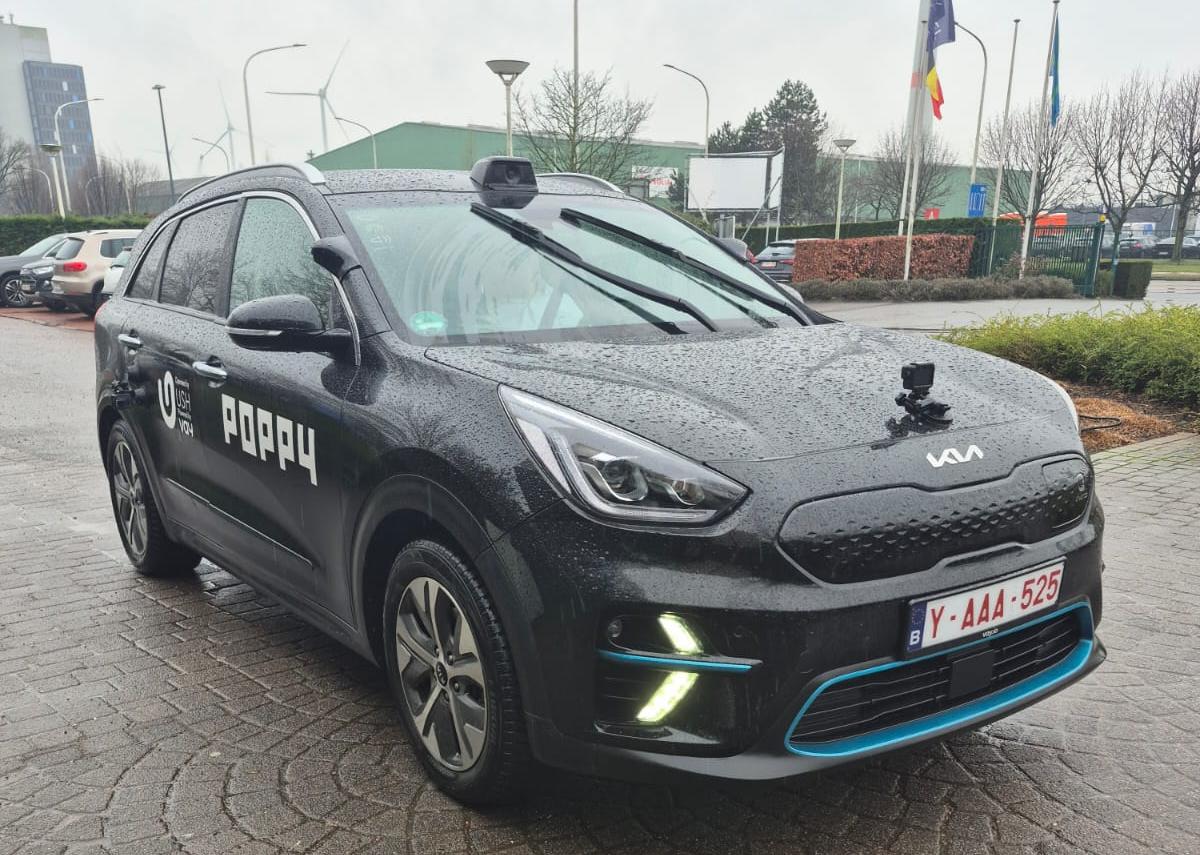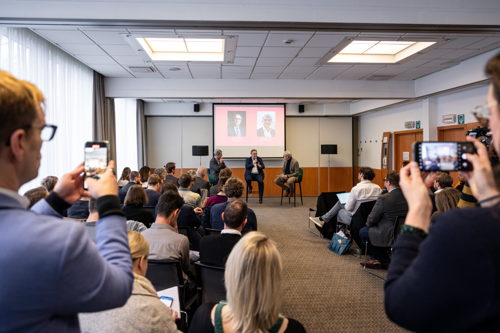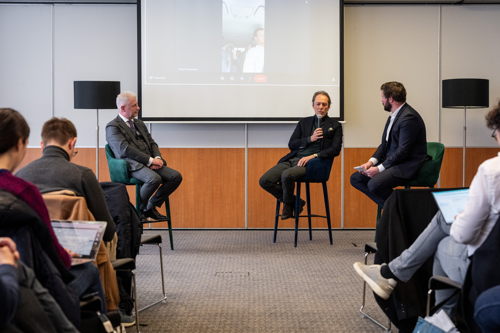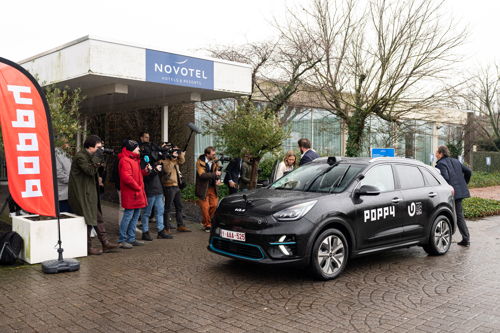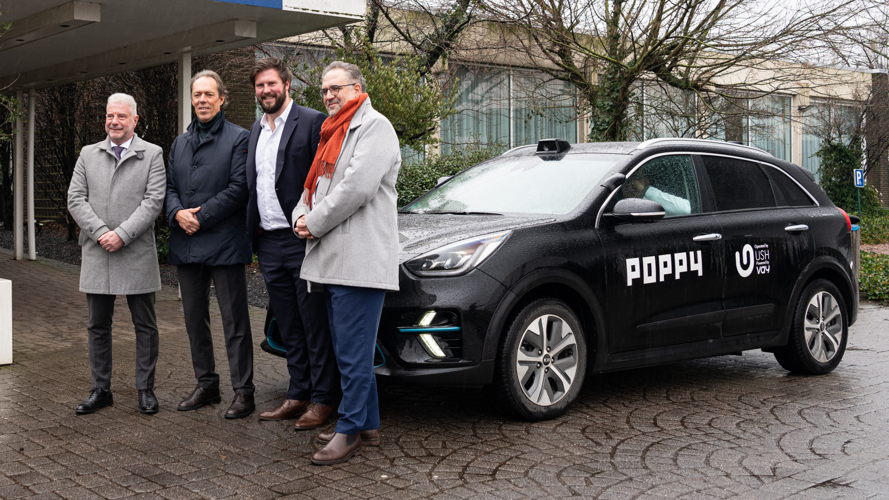First in Port of Antwerp-Bruges: Ush and Poppy launch remote-driven rental cars
Imagine ordering a rental car that comes to you autonomously and without a driver? Thanks to Ush and Poppy Mobility, subsidiaries of D'Ieteren Automotive, this is now a reality for the first time at the Antwerp port. In collaboration with Port of Antwerp-Bruges, they are introducing a pioneering mobility solution: remote-controlled rental cars that navigate around the port area. This launch reinforces the port's pioneering role in mobility and technology.
Key Points
⚓Ush and Poppy Mobility launched the first remote-driven rental cars in Port of Antwerp-Bruges for customer Boluda.
⚓The service is supported by advanced technology from Vay.
⚓ The port is the ideal test environment due to its logistical complexity and innovative character.
⚓ After a test phase with two vehicles, a phased rollout will follow, with a full commercial launch planned from 2026.
A new way of car sharing with Ush, Poppy Mobility and Vay
Ush, a Belgian pioneer in autonomous vehicle solutions, and Poppy Mobility, Belgium's leading car sharing and rental company, have chosen Port of Antwerp-Bruges as the test site for their innovative car sharing service.
For the initial commercial rollout, two remotely operated vehicles will be deployed for Boluda, a key maritime service provider in the Antwerp port. Boluda employees working in remote areas of the port can request a Poppy rental car via the app, which will drive to them autonomously. They can then take the wheel themselves to reach their destination. After use, the remote driver regains control and navigates the vehicle to the next customer.
Port of Antwerp-Bruges as an innovation hub
As a dynamic environment with complex logistical challenges, Port of Antwerp-Bruges is the ideal location for this project. The introduction of remote-driven vehicles can enhance accessibility for employees and provide companies with more flexible and sustainable transport solutions.
Port of Antwerp-Bruges has already proven to be an accelerator for innovative technologies such as autonomous drones and ships. With this project, the port is building on its role as an innovation hub, working closely with Flemish and national regulators who want to encourage technological progress by creating low regulatory zones.
Phased implementation with a focus on safety
In order to introduce this technology safely and responsibly in Belgium, Ush and Poppy Mobility are taking a step-by-step approach. Following the test phase with Boluda, additional companies will be invited in the coming months to offer the service to their employees.
Jacques Vandermeiren, CEO of the Port of Antwerp-Bruges: “With the introduction of remote-driving technology in Port of Antwerp-Bruges, the port confirms its role as a testing ground for cutting-edge technologies. It has already served as a launch pad for autonomous shipping and autonomous drones, both of which are now scaling rapidly - demonstrating how the port accelerates innovation. The testing of this remote-driving technology follows the same trajectory, reinforcing the port’s position as a key innovation hub where technologies are tested, validated, and fast-tracked for commercial deployment. With the federal and Flemish governments' ambition to develop low-regulation test zones where new technologies can prove their reliability and potential, the port can further strengthen this position.”
Johan Klaps Alderman responsible for Economy and Harbour: "With 5% of Belgium's GDP and 160,000 direct and indirect jobs, Port of Antwerp-Bruges must constantly innovate to continue to guarantee efficiency, reliability and safety. The introduction of remote-driven vehicles can offer port companies opportunities in terms of flexibility, accessibility and efficiency in the future."
Max Levandowski, CEO of Ush: "To introduce this technology in Belgium, we are committed to a step-by-step approach in close consultation with the regulatory authorities. We are deliberately starting on a limited scale with two vehicles serving key locations in the port and are very excited about this first step. By 2026, we aim for a full commercial rollout in Antwerp. To realize this, we are working with relevant authorities to establish a legal framework for remote-driven vehicles.”
